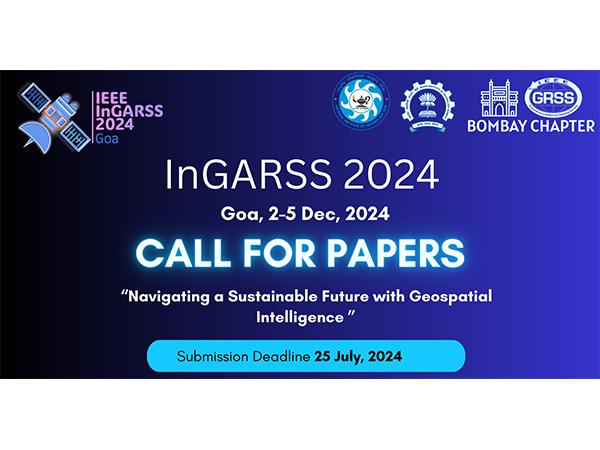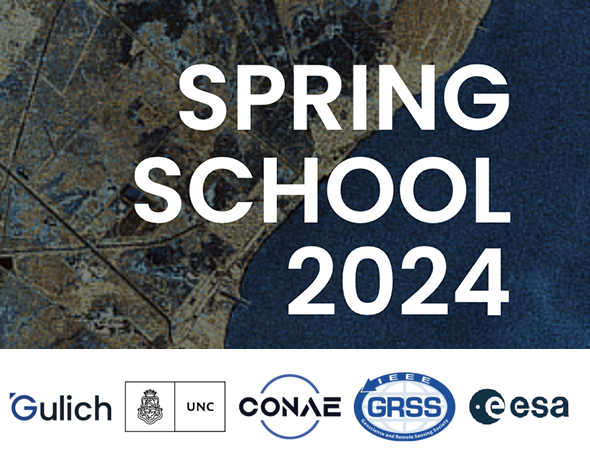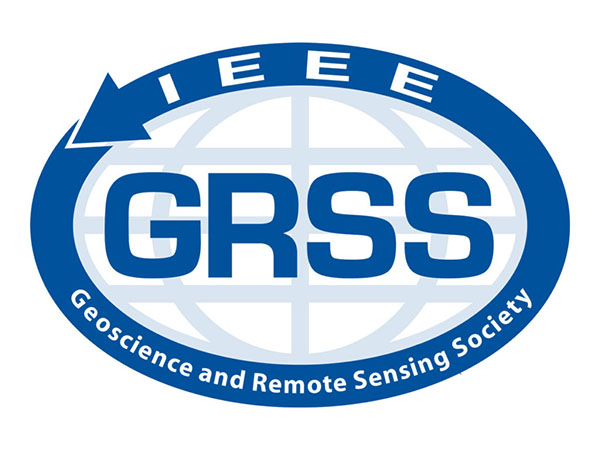Thursday, October 29, 2020
12:00-1:30 PM Eastern Time
Co-organizers:
Keely Roth, IEEE GRSS IDEA co-chair, USA
Garry Harris, Center for Sustainable Communities, WISE-E, USA
Moderator:
Juliet Hall, Advisor & Leadership Consultant at Juliet Hall Inc., USA
Panelists:
Dr. Ana Ferreras, Senior Program Officer, The National Academies of Sciences, Engineering, and Medicine, USA
Ms. Gladys Mosomtai, PhD Fellow, International Centre of Insect Physiology and Ecology (icipe) in Nairobi, Kenya & University of KwaZulu-Natal, School of Agricultural, Earth, and Environmental Sciences
Dr. Swastika Mukherjee (Chakraborty), Associate Professor, Sikkim Manipal Institute of Technology, Electronics and Communication Engineering Department, India
Dr. Patricia Oliva Pavón, Assistant Research Professor, Universidad Mayor, Hémera Center for Earth Observation, Chile
Annemarie Klaasse, Senior Project Manager, eLEAF, The Netherlands
Sponsored by GRSS

IDEA/WISE-E Inspire & Empower Panel
As part of the IGARSS 2020 Virtual TIE Events, we are pleased to invite you to this session co-organized by the GRSS IDEA (Inspire, Develop, Empower, and Advance) committee and WISE-E (Women in Science, Engineering, and the Environment). We will be taking a world tour of cutting-edge remote sensing and geoscience research featuring the successful women scientists behind the work. You’ll discover where and how they work, hear about their experiences in and passion in science and engineering, and learn from their journeys. The live event will feature a moderated Q&A panel and the finalists and winners from our “Women in Geoscience #INSPIRE Us” photo contest.
SPEAKER’S BIO:
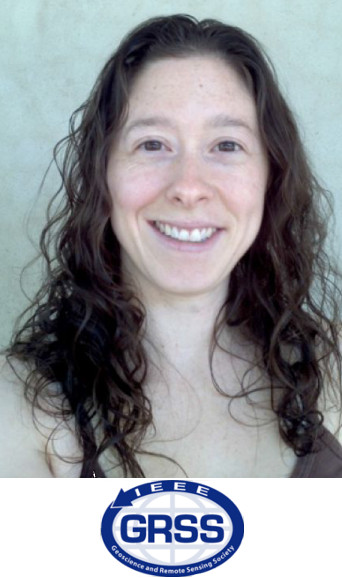 Dr. Keely Roth is a Lead Data Scientist with The Climate Corporation. She is based in San Francisco, CA, and has 10+ years experience in remote sensing research and geospatial analysis. In her current role at The Climate Corporation, she leads a team of Data Scientists, Analysts, and Engineers to develop and deploy algorithms to improve data quality. Previously she designed and led research projects aimed at improving our ability to measure and map crop health during the growing season using field data and remotely sensed imagery from UAVs, planes, and satellites. In her work, she is especially focused on and committed to applying the best remote sensing scientific principles to developing models and generating valuable data layers for her scientific colleagues as well as for farmers within the Climate FieldView platform. She is passionate about helping farmers use their data to make faster, easier, and more informed decisions, and she is optimistic that the data revolution in agriculture, especially the continued improvement and integration of remote sensing data, will have positive impacts for both farmers and the environment.
Dr. Keely Roth is a Lead Data Scientist with The Climate Corporation. She is based in San Francisco, CA, and has 10+ years experience in remote sensing research and geospatial analysis. In her current role at The Climate Corporation, she leads a team of Data Scientists, Analysts, and Engineers to develop and deploy algorithms to improve data quality. Previously she designed and led research projects aimed at improving our ability to measure and map crop health during the growing season using field data and remotely sensed imagery from UAVs, planes, and satellites. In her work, she is especially focused on and committed to applying the best remote sensing scientific principles to developing models and generating valuable data layers for her scientific colleagues as well as for farmers within the Climate FieldView platform. She is passionate about helping farmers use their data to make faster, easier, and more informed decisions, and she is optimistic that the data revolution in agriculture, especially the continued improvement and integration of remote sensing data, will have positive impacts for both farmers and the environment.
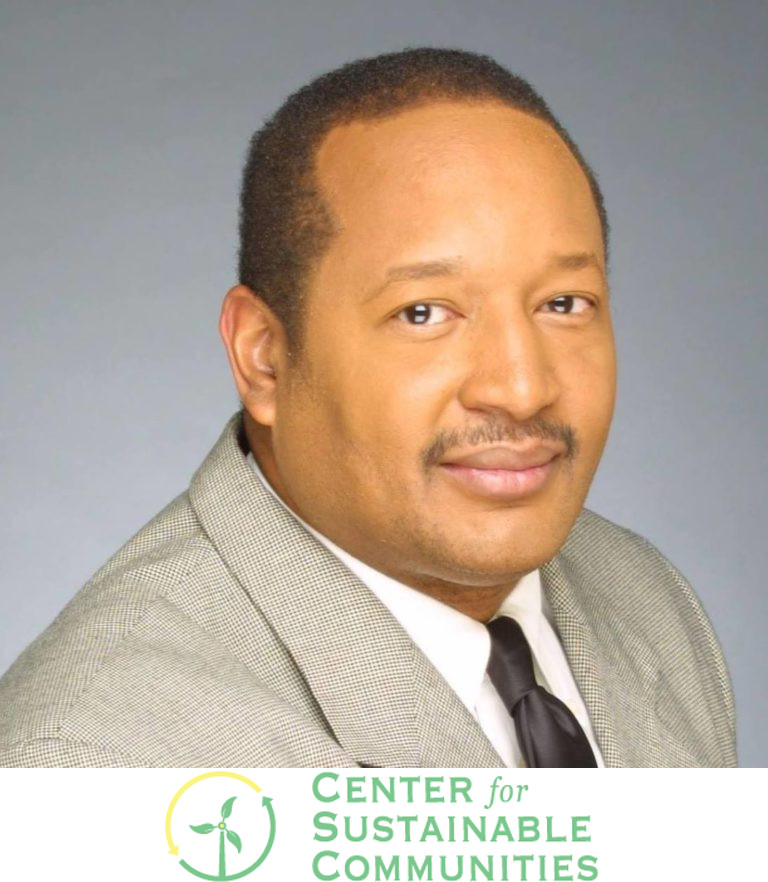 Garry A. Harris is the President of the Center for Sustainable Communities, a non profit dedicated to making communities cleaner, greener, healthier, safer and more climate resilient through research, project and program development, technical assistance, policy and advocacy He is also the President of Sustainability Solutions Group (SSG), a consulting firm that provides diverse sustainability, energy engineering and power generation technical services. Mr Harris has more than three decades of experience in the energy, environmental and sustainability fields, including energy efficiency and has performed extensive project management, design, construction, quality assurance, field engineering, plant operations, training, research and regulatory activities at more than eighty power generation and faciliities nationally and internationally He has previously held senior positions at the Westinghouse Electric Corporation, Institute for Nuclear Power Operations and US Nuclear Regulatory Commission. Mr. Harris was a Senior Reactor Operator (SRO), certified instructor by both the Nuclear Regulatory Commission and the Westinghouse Electric Corporation. Mr. Harris has worked to form, sustain and actively participate in state wide energy and environmental advocacy, equity, sustainability coalitions including Georgia Energy and Industrial Construction Consortium, Emerald Cities Collaborative Atlanta (green jobs), Better Building Challenge Atlanta (green buildings),Just Energy Circle (energy equity Energy Services Coalition, Georgia Environmental Justice Alliance, Advancing Equity and Opportunities and Clean Power Plan Working Group and the Demand Side Management Working Group. His policy development and advocacy activities include the Clean Power Plan, Demand Side Energy Efficiency, Environmental Justice (Atlanta Beltline Project), State Energy Service Performance Contracting Legislation, City of Atlanta Clean Energy, Climate Action and Resiliency Plan.
Garry A. Harris is the President of the Center for Sustainable Communities, a non profit dedicated to making communities cleaner, greener, healthier, safer and more climate resilient through research, project and program development, technical assistance, policy and advocacy He is also the President of Sustainability Solutions Group (SSG), a consulting firm that provides diverse sustainability, energy engineering and power generation technical services. Mr Harris has more than three decades of experience in the energy, environmental and sustainability fields, including energy efficiency and has performed extensive project management, design, construction, quality assurance, field engineering, plant operations, training, research and regulatory activities at more than eighty power generation and faciliities nationally and internationally He has previously held senior positions at the Westinghouse Electric Corporation, Institute for Nuclear Power Operations and US Nuclear Regulatory Commission. Mr. Harris was a Senior Reactor Operator (SRO), certified instructor by both the Nuclear Regulatory Commission and the Westinghouse Electric Corporation. Mr. Harris has worked to form, sustain and actively participate in state wide energy and environmental advocacy, equity, sustainability coalitions including Georgia Energy and Industrial Construction Consortium, Emerald Cities Collaborative Atlanta (green jobs), Better Building Challenge Atlanta (green buildings),Just Energy Circle (energy equity Energy Services Coalition, Georgia Environmental Justice Alliance, Advancing Equity and Opportunities and Clean Power Plan Working Group and the Demand Side Management Working Group. His policy development and advocacy activities include the Clean Power Plan, Demand Side Energy Efficiency, Environmental Justice (Atlanta Beltline Project), State Energy Service Performance Contracting Legislation, City of Atlanta Clean Energy, Climate Action and Resiliency Plan.
Mr Harris has received numerous awards and holds positions on several boards and civic associations including 100 Black Men of Atlanta, Emory University Rollins School of Public Health, Georgia Interfaith Power and Light and Emory University School of Theology (CREATE program (Culture, Religion, Ethics, and the Environment)
He is a recognized leader in STEM Education in the State of Georgia by the Technology Association of Georgia.
Mr. Harris is a graduate of the 2009 Class of Leadership Atlanta; 2013 Class of Regional Leadership Institute; 2013 Class of the Institute for Georgia Environmental Leadership; Community Leadership Institute (NeighborWorks) and National Environmental Justice Leadership Academy (May 2016)
Mr. Harris is the Creation Care Ministry Leader: Environmental at the Historic Ebenezer Baptist Church; an Green Faith Fellowship (Creation Care/Environmental) and selected to Green the Church National Leadership Council (Green for All).
Mr. Harris holds a BS in Nuclear Engineering from the University of Virginia, a MS in Technology Management and a MS in Quality Engineering and is seeking a PHD in Energy and Environmental Policy from the Georgia Institute of Technology.
 Juliet Hall is the principal of Juliet Hall Inc, a leadership consulting firm based in Atlanta, GA. Dedicated to igniting a purpose-filled passion in others, Juliet helps leaders who are at a professional crossroads to pursue their own self-discovery, develop their natural talents, and maximize their leadership potential. A graduate of Spelman College and the Terry College of Business at The University of Georgia, Juliet is a national speaker and compelling voice on the topics of self-maximization, inclusive leadership and women’s empowerment.
Juliet Hall is the principal of Juliet Hall Inc, a leadership consulting firm based in Atlanta, GA. Dedicated to igniting a purpose-filled passion in others, Juliet helps leaders who are at a professional crossroads to pursue their own self-discovery, develop their natural talents, and maximize their leadership potential. A graduate of Spelman College and the Terry College of Business at The University of Georgia, Juliet is a national speaker and compelling voice on the topics of self-maximization, inclusive leadership and women’s empowerment.
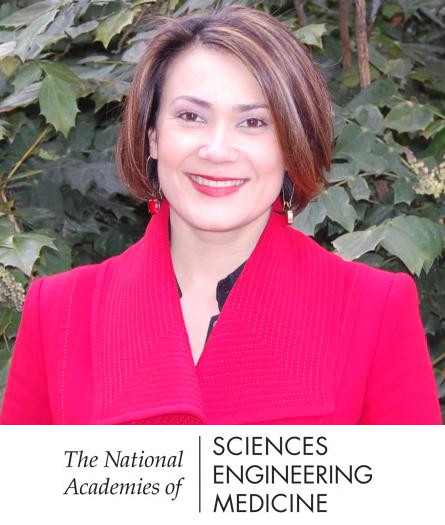 Ana Ferreras is a Senior Program Officer at the U.S. National Academies of Sciences, Engineering, and Medicine (NASEM) where she manages the U.S. National Committees for mathematics instruction, crystallography, physics, theoretical and applied mechanics, and radio science. She is also a consultant, evaluator, speaker, professional developer, researcher, fundraising expert, and advisor for organizational leaders in the private sector, academia, and the federal government. She is the leading author of “Company Success in Manufacturing Organizations: A Holistic Systems Approach.” Dr. Ferreras earned a PhD in Industrial Engineering (IE) at the University of Central Florida (UCF). Her doctoral research focused on developing a company success index model to assess and predict organizational performance based on critical success factors such as profit, productivity, efficiency, quality, employee morale, safety and ergonomics. She also holds an MS in Engineering Management from the Florida Institute of Technology and a BS in Electrical Engineering from UCF. During her doctoral research, she assisted the IE Department at UCF in reengineering the undergraduate curriculum by developing a national model, new programs, experiential laboratories, and research centers. Dr. Ferreras was a winter 2008 Christine Mirzayan Policy Graduate Fellow with the Center for Advancement of Scholarship on Engineering Education at the National Academy of Engineering.
Ana Ferreras is a Senior Program Officer at the U.S. National Academies of Sciences, Engineering, and Medicine (NASEM) where she manages the U.S. National Committees for mathematics instruction, crystallography, physics, theoretical and applied mechanics, and radio science. She is also a consultant, evaluator, speaker, professional developer, researcher, fundraising expert, and advisor for organizational leaders in the private sector, academia, and the federal government. She is the leading author of “Company Success in Manufacturing Organizations: A Holistic Systems Approach.” Dr. Ferreras earned a PhD in Industrial Engineering (IE) at the University of Central Florida (UCF). Her doctoral research focused on developing a company success index model to assess and predict organizational performance based on critical success factors such as profit, productivity, efficiency, quality, employee morale, safety and ergonomics. She also holds an MS in Engineering Management from the Florida Institute of Technology and a BS in Electrical Engineering from UCF. During her doctoral research, she assisted the IE Department at UCF in reengineering the undergraduate curriculum by developing a national model, new programs, experiential laboratories, and research centers. Dr. Ferreras was a winter 2008 Christine Mirzayan Policy Graduate Fellow with the Center for Advancement of Scholarship on Engineering Education at the National Academy of Engineering.
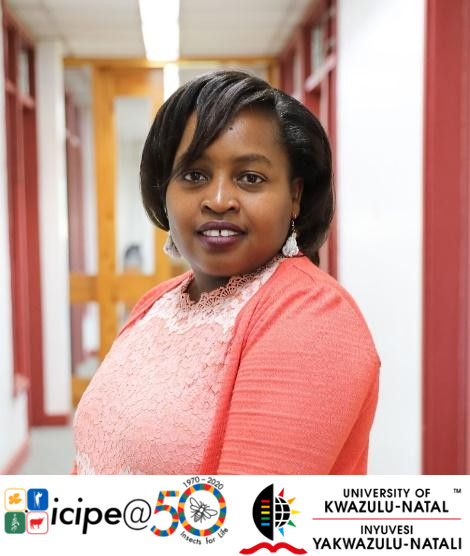 Gladys Mosomtai received her MS in Geospatial Information Systems and Remote Sensing in 2017 from the Dedan Kimathi University of Technology.
Gladys Mosomtai received her MS in Geospatial Information Systems and Remote Sensing in 2017 from the Dedan Kimathi University of Technology.
She is a passionate user of earth observation technology in pursuing the following research interests; landscape ecology, landscape genetics and epidemiology, movement ecology, species distribution modelling, food security, disaster risk management and climate change. Competent in R programming language, various GIS and remote sensing software and has a good command in statistical analysis and data mining techniques. Described by others as having the ability to perform tasks with a good technical understanding and soundness while being able to come up with solutions in regards to complex scientific issues.
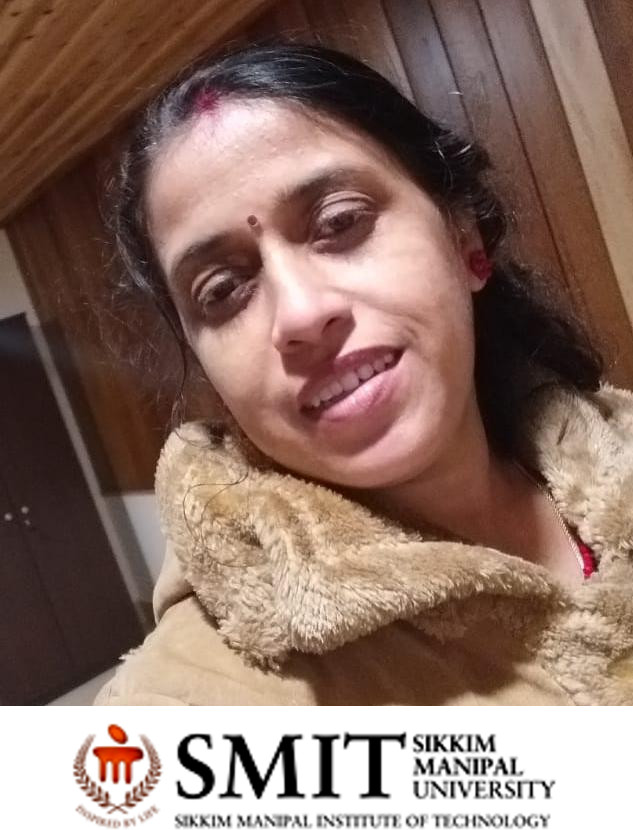 Swastika Mukherjee received her PhD from Calcutta University in 2015. Since 2016 she has been an Associate Professor in the ECE Dept of SMIT. She is the subject coordinator of Advanced Microprocessor and Digital Communication. Her expertise is in the fields of Radio Physics & Electronics, including Remote sensing, particularly in radiometric measurements of clouds.
Swastika Mukherjee received her PhD from Calcutta University in 2015. Since 2016 she has been an Associate Professor in the ECE Dept of SMIT. She is the subject coordinator of Advanced Microprocessor and Digital Communication. Her expertise is in the fields of Radio Physics & Electronics, including Remote sensing, particularly in radiometric measurements of clouds.
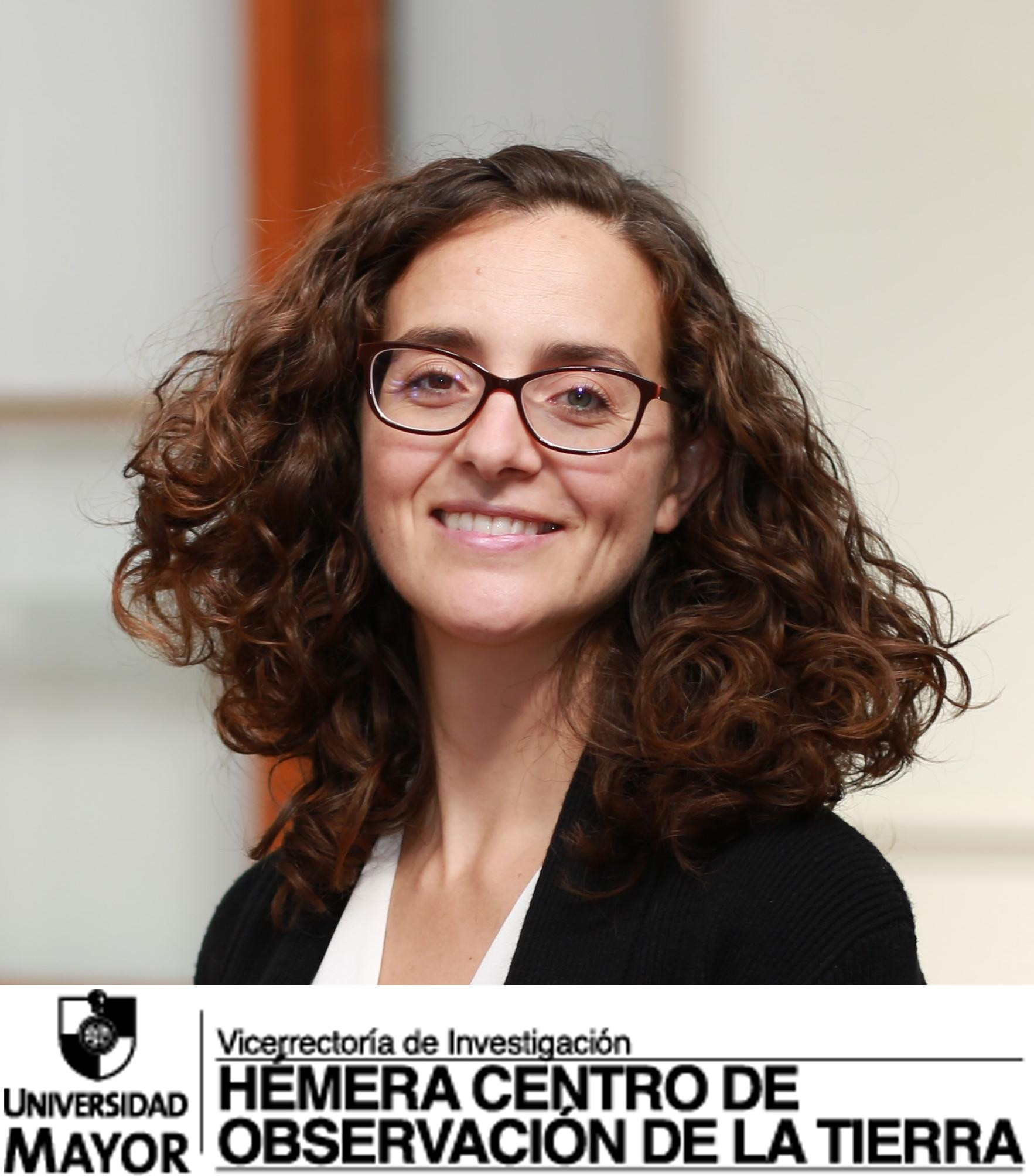 Patricia Oliva Pavón has a degree in Environmental Sciences from the University of Alcalá, (Alcalá de Henares, Spain). In 2010 she obtained the degree of Doctor in Cartography, GIS and Remote Sensing from the same university focused on the development of an automatic method of mapping burned areas using medium resolution satellite images. She then did a postdoctoral stay funded by the Changing Earth Science Network Initiative program of the European Space Agency during which he studied how to make estimates of burn severity with medium resolution satellite images. In 2013 she joined the Wildfire group at the University of Maryland working alongside Drs. Wilfrid Schroeder and Louis Giglio. With them she worked on the development of new active fire detection algorithms with images from the Suomi-NPP / VIIRS sensor, intended to replace the popular MODIS sensor, and Landsat 8. At the same time, she developed a system to integrate different sources of fire and remote sensing data in a fire behavior prediction model. In 2016, she began to collaborate with the research group for monitoring agriculture and food security (GEOGLAM) to create a global mask of agricultural areas of the major crops (rice, wheat, soybeans and corn).
Patricia Oliva Pavón has a degree in Environmental Sciences from the University of Alcalá, (Alcalá de Henares, Spain). In 2010 she obtained the degree of Doctor in Cartography, GIS and Remote Sensing from the same university focused on the development of an automatic method of mapping burned areas using medium resolution satellite images. She then did a postdoctoral stay funded by the Changing Earth Science Network Initiative program of the European Space Agency during which he studied how to make estimates of burn severity with medium resolution satellite images. In 2013 she joined the Wildfire group at the University of Maryland working alongside Drs. Wilfrid Schroeder and Louis Giglio. With them she worked on the development of new active fire detection algorithms with images from the Suomi-NPP / VIIRS sensor, intended to replace the popular MODIS sensor, and Landsat 8. At the same time, she developed a system to integrate different sources of fire and remote sensing data in a fire behavior prediction model. In 2016, she began to collaborate with the research group for monitoring agriculture and food security (GEOGLAM) to create a global mask of agricultural areas of the major crops (rice, wheat, soybeans and corn).
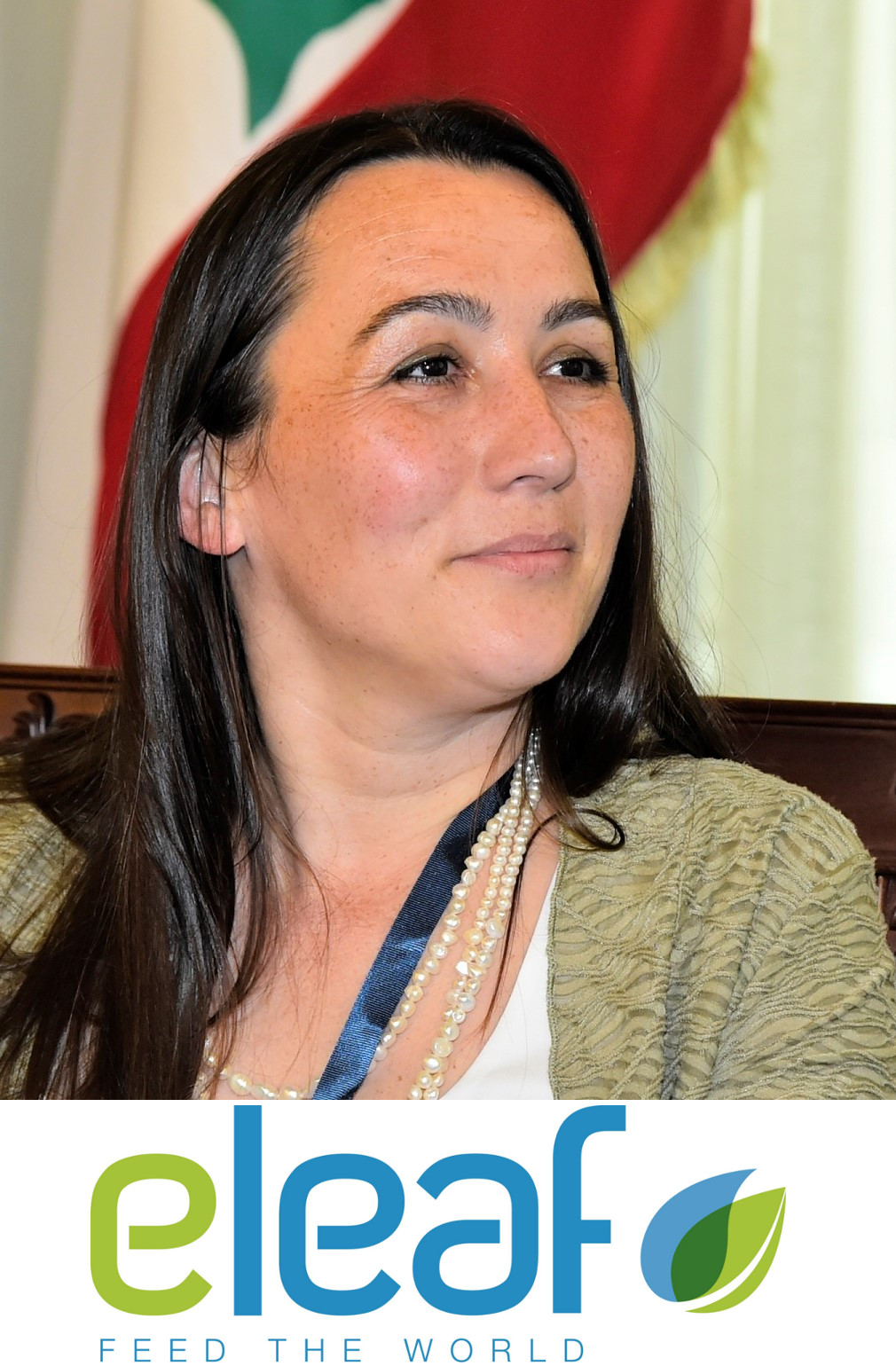 Annemarie Klaasse is an experienced remote sensing specialist with 18 years of experience in the use of satellite earth observation data and algorithms for environmental applications. Annemarie holds a MSc in Soil and Water Conservation & Remote Sensing from Wageningen University (2001), the top1 university in agriculture and forestry (2019).
Annemarie Klaasse is an experienced remote sensing specialist with 18 years of experience in the use of satellite earth observation data and algorithms for environmental applications. Annemarie holds a MSc in Soil and Water Conservation & Remote Sensing from Wageningen University (2001), the top1 university in agriculture and forestry (2019).
In 2005, she joined eLEAF, a Netherlands-based high-tech company that provides satellite based applications and data to optimize crop production and water management. Under the European Space Agency (ESA) EO4SD initiative she aims to mainstream earth observation data in the daily operations of the Multilateral Development Banks.






















